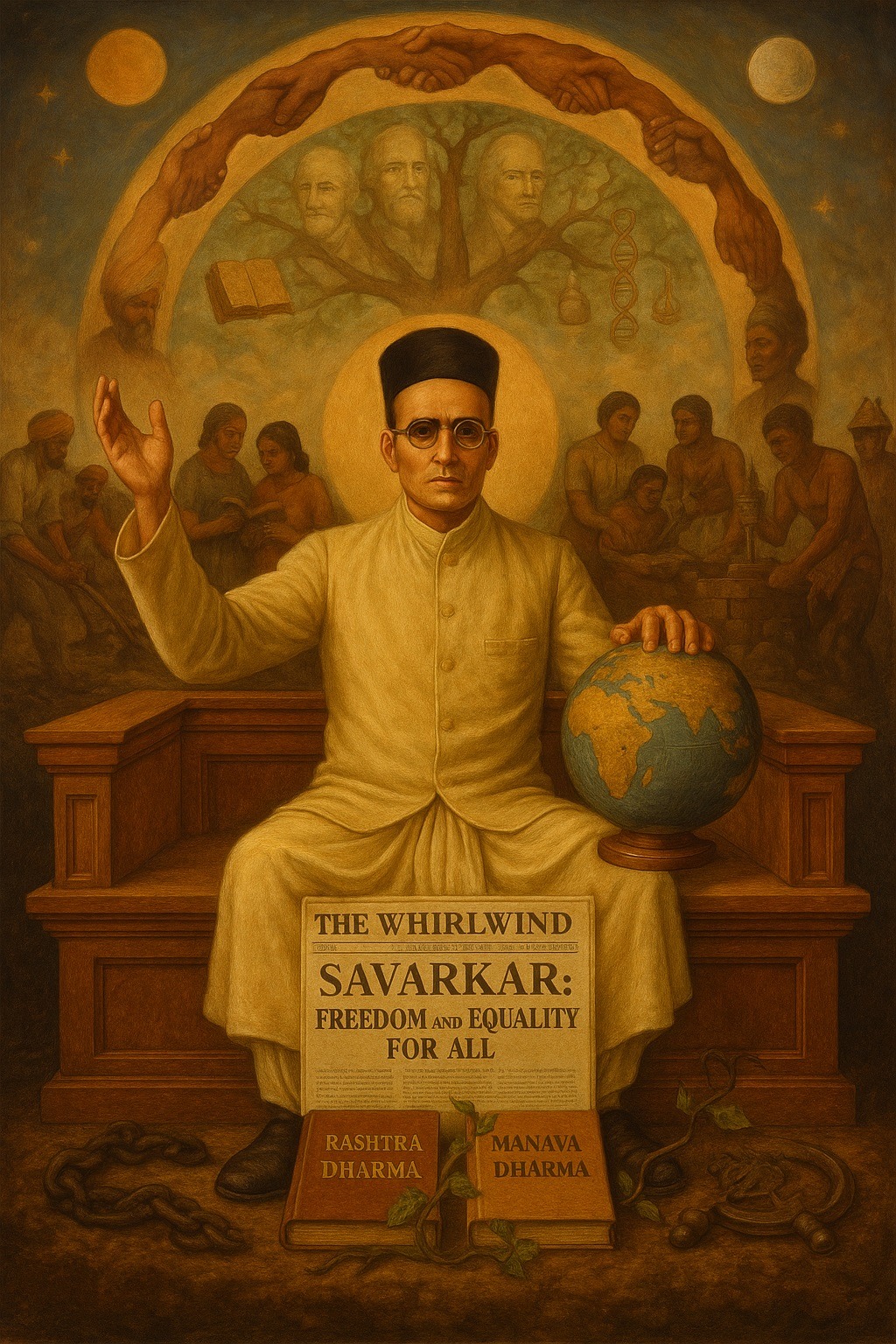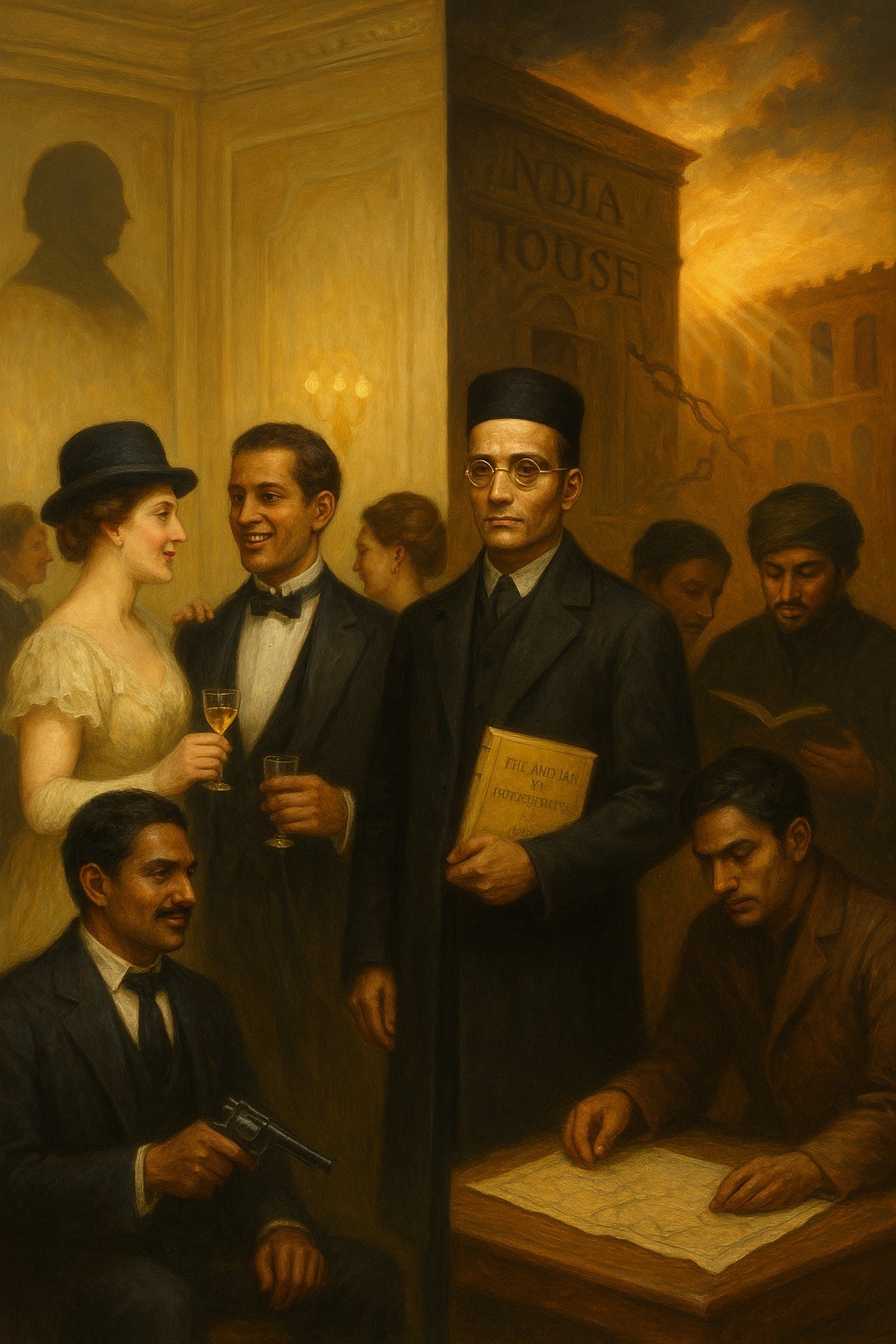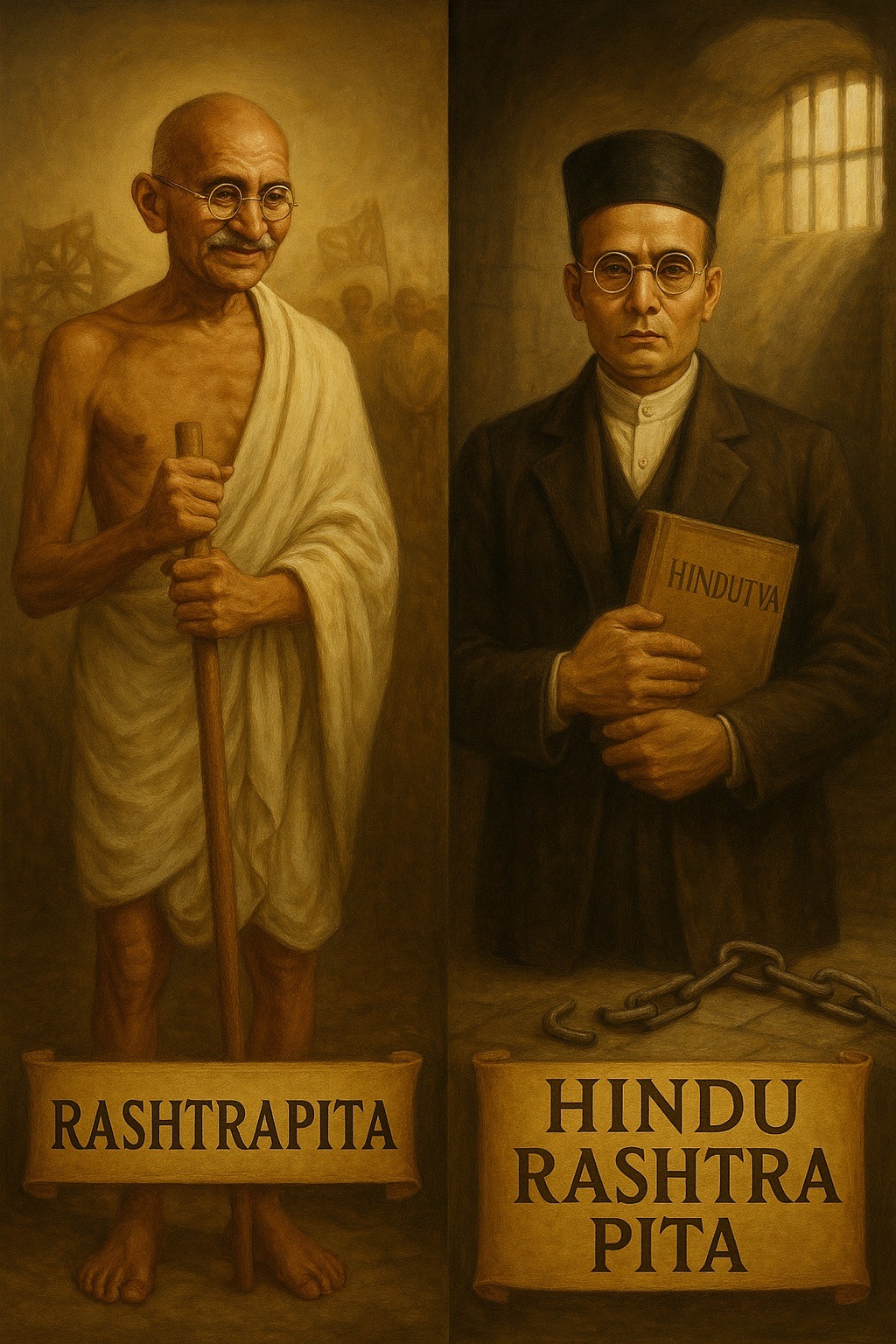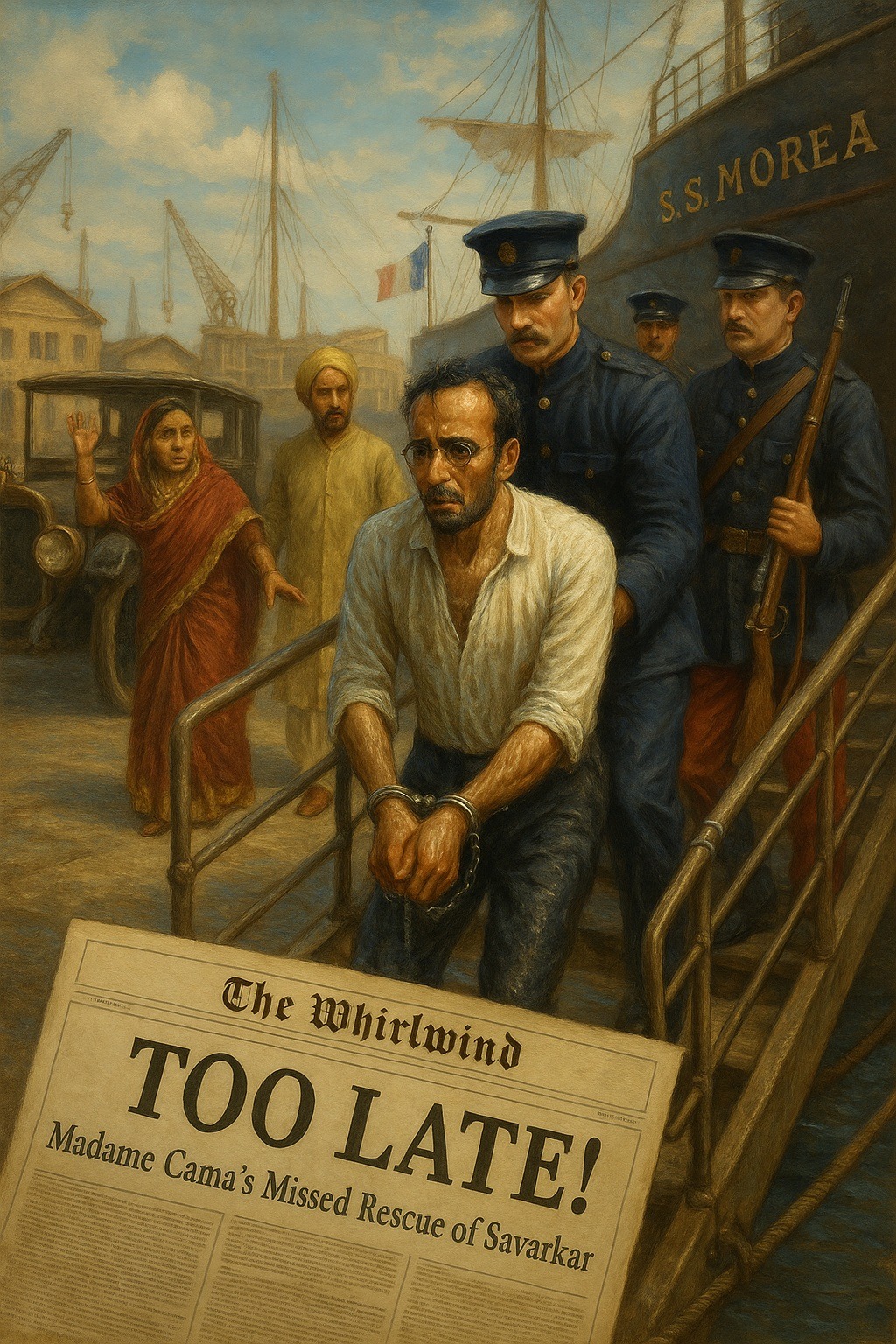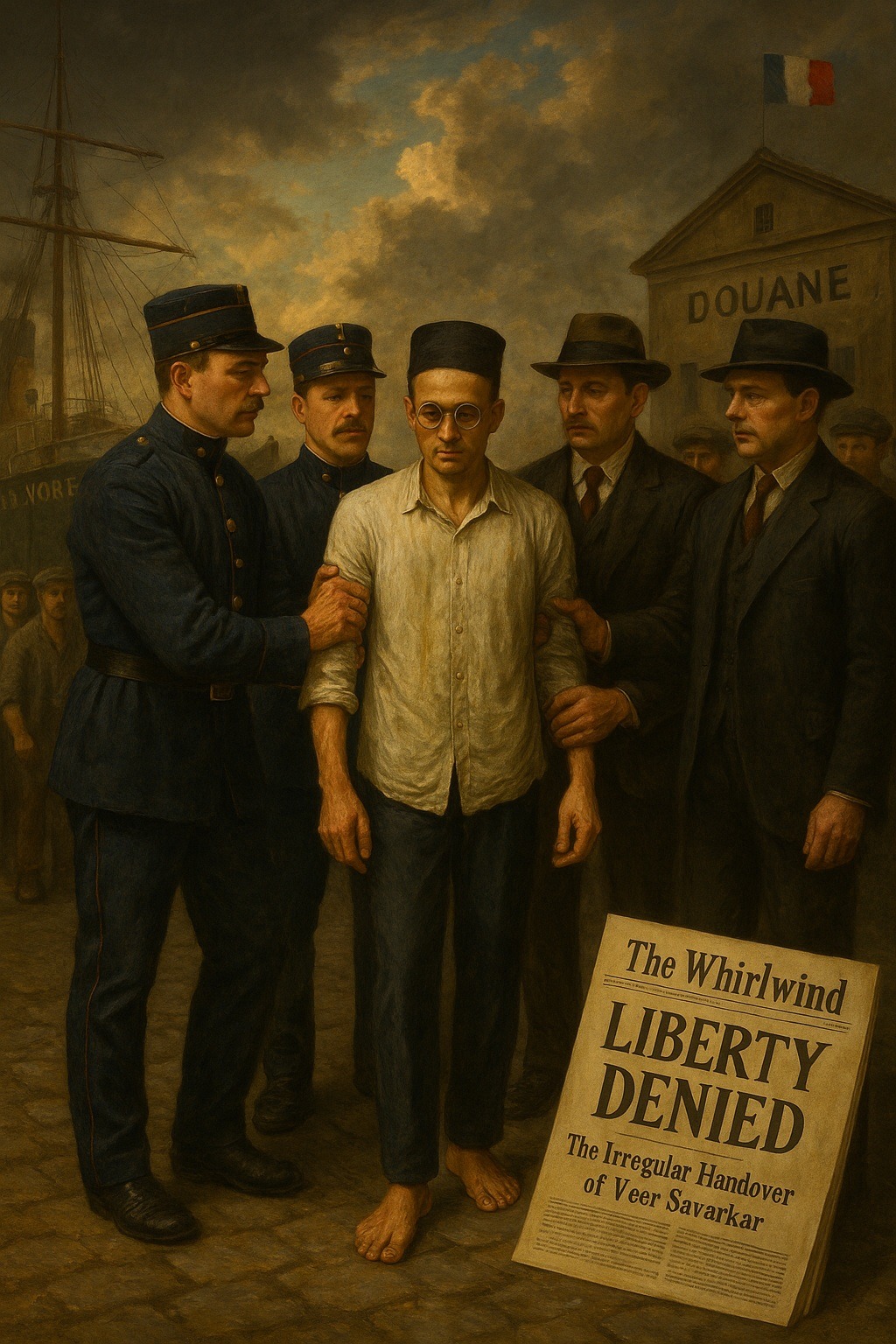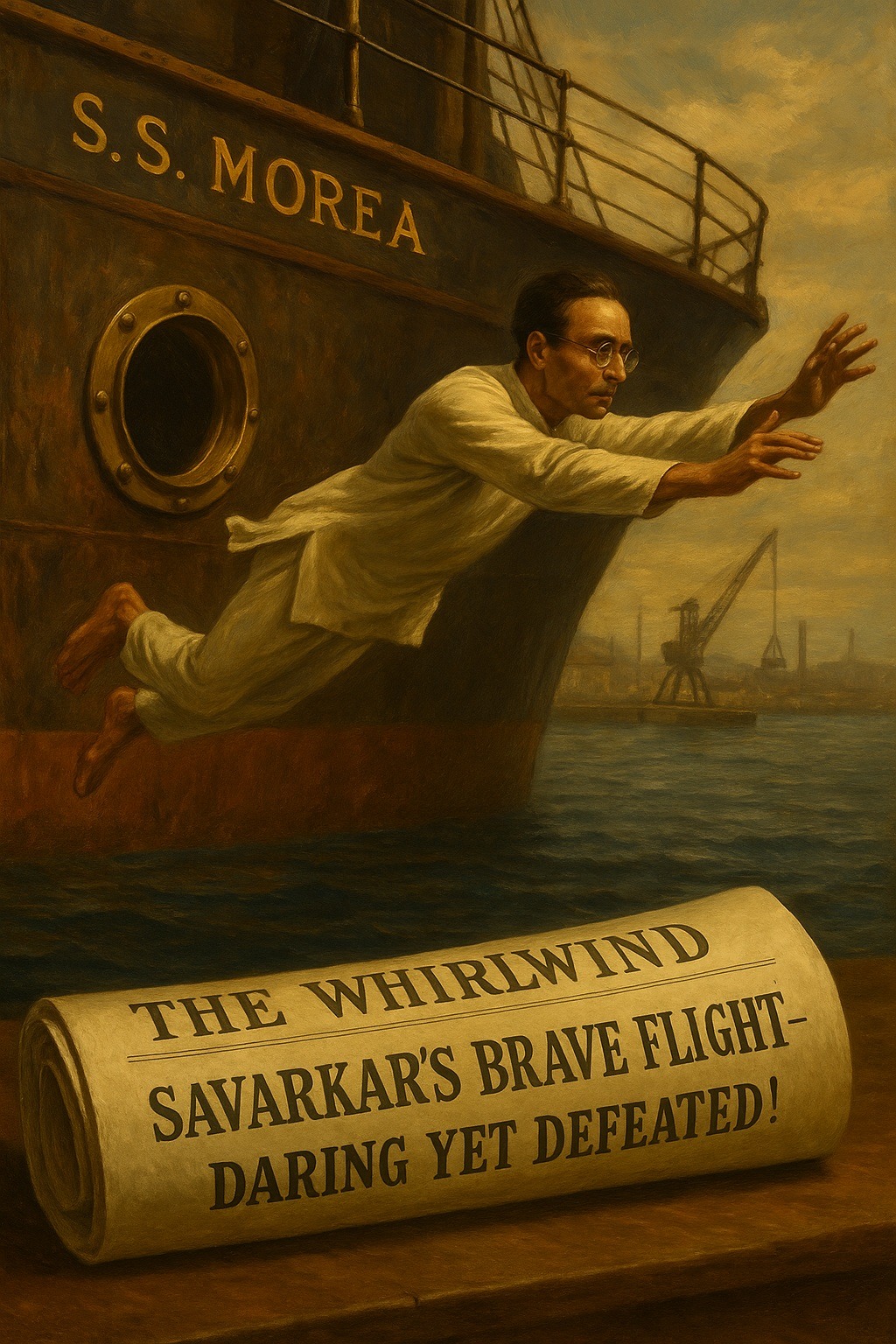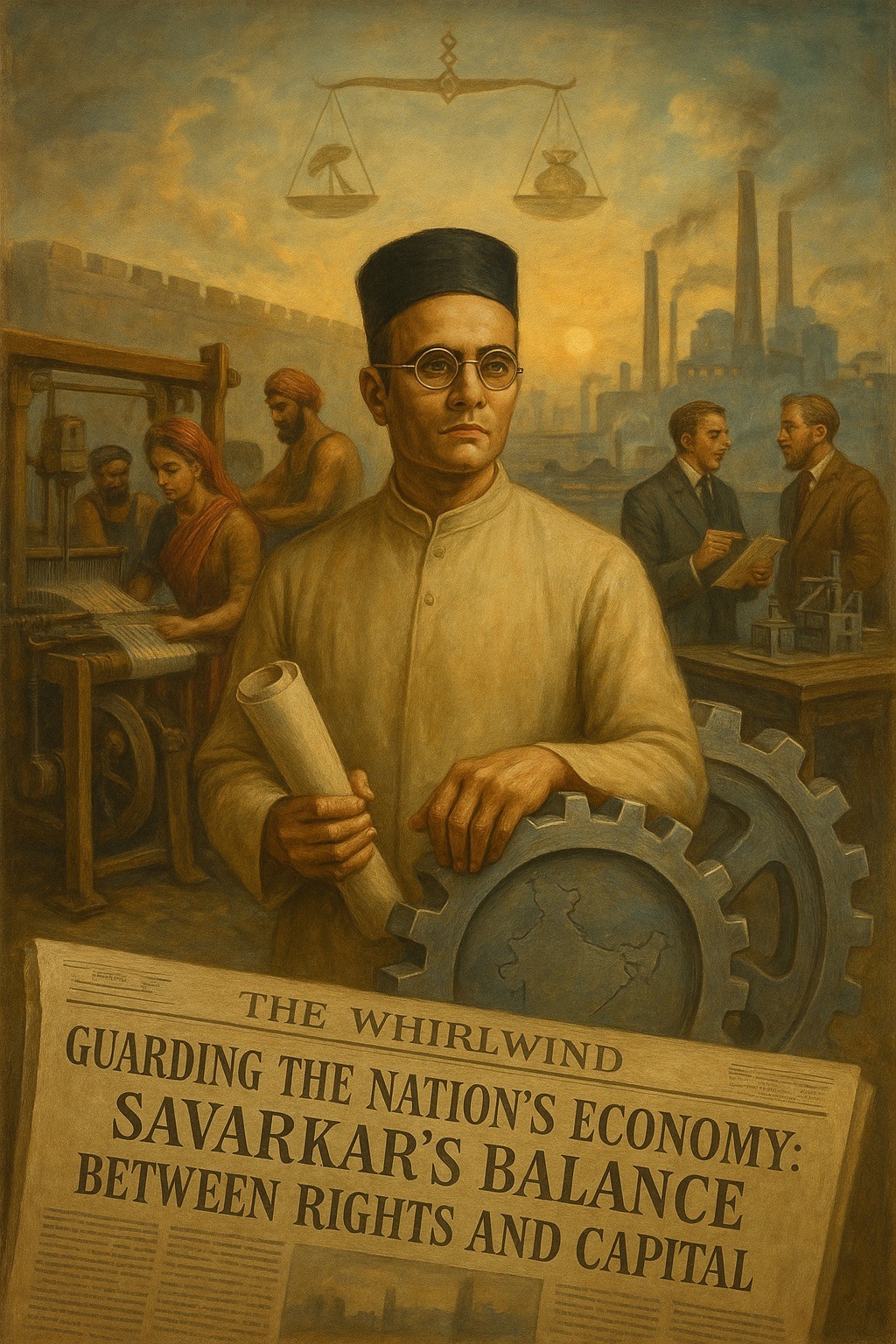Tag: ColonialHistory
-
Savarkar’s Philosophy & Worldview, Part 12; Savarkar’s Five Philosophical Dimensions (5/6) Vinayak Damodar (Veer) Savarkar embedded a profound sense of realism in his philosophy. Beyond mere pragmatism, his worldview was rooted in adaptability, acknowledging that no ideology, institution, or tradition is universally applicable across all times and circumstances. His understanding of human behavior was dynamic—what…
-
Since M.K. (Mahatma) Gandhi is called by many of his followers Rashtrapita (“Father of the Nation”), it is fitting that Vinayak Damodar (Veer) Savarkar be acknowledged as Hindu Rashtra Pita—the “Father of the Hindu Nation.” This title recognizes not only his seminal contribution to the Indian freedom struggle but also his immense personal sacrifices and…
-
The dramatic escape of Vinayak Damodar (Veer) Savarkar at the port of Marseilles in July 1910 remains one of the most notable episodes of India’s revolutionary struggle. Under strict British custody, Savarkar attempted a daring flight through the porthole of the docked S.S. Morea, swimming through the harbor waters to set foot on French soil.…
-
In the historiography of India’s struggle for independence, references typically focus on imprisonment, exile, or capital punishment as instruments of colonial repression. Less frequently noted, however, is the annulment of academic qualifications as a form of political sanction. The case of Vinayak Damodar (Veer) Savarkar (1883–1966) stands out in this regard: he became the first…
-
In July 1910, Vinayak Damodar (Veer) Savarkar attempted one of the most discussed escapes in the history of anti-colonial struggles. After leaping through a porthole of the British steamer S.S. Morea as it docked at Marseilles, he swam ashore and set foot on French soil – intending to claim political asylum. The Irregular Handover of…
-
Savarkar’s Coding of Hindutva; Metacode Rashtra, Part 8; Code Mythos (1/20) When we hear the word myth today, we often think of stories that are not meant to be taken literally—legends with little claim to truth. Yet myths can do far more than entertain: they can inspire fascination, bind people together, and create a sense…
-
On the morning of July 8, 1910, Vinayak Damodar (Veer) Savarkar managed to escape from his British guards aboard the steamer S.S. Morea, anchored in the French harbor of Marseille. After a brief swim from the docked ship to the quay, he set foot on French soil. Savarkar’s Plan Behind the Escape By reaching the…
-
Vinayak Damodar (Veer) Savarkar’s escape attempt at the French port of Marseilles on July 8, 1910, remains one of the most daring and dramatic episodes in the history of Indian freedom fighters in Europe. Years later, in his final press interview, Savarkar himself described it as the most memorable event of his life. What unfolded…
-
Economic Dimension of Hindutva, Part 10; Savarkar’s Economic Principles (6/13) Economic stability and national prosperity depend on a balanced relationship between industry, labor, and capital. In a thriving economy, workers should fairly partake in the profits of the industry. However, in times of economic downturn, just as capital suffers losses, workers too must be prepared…

